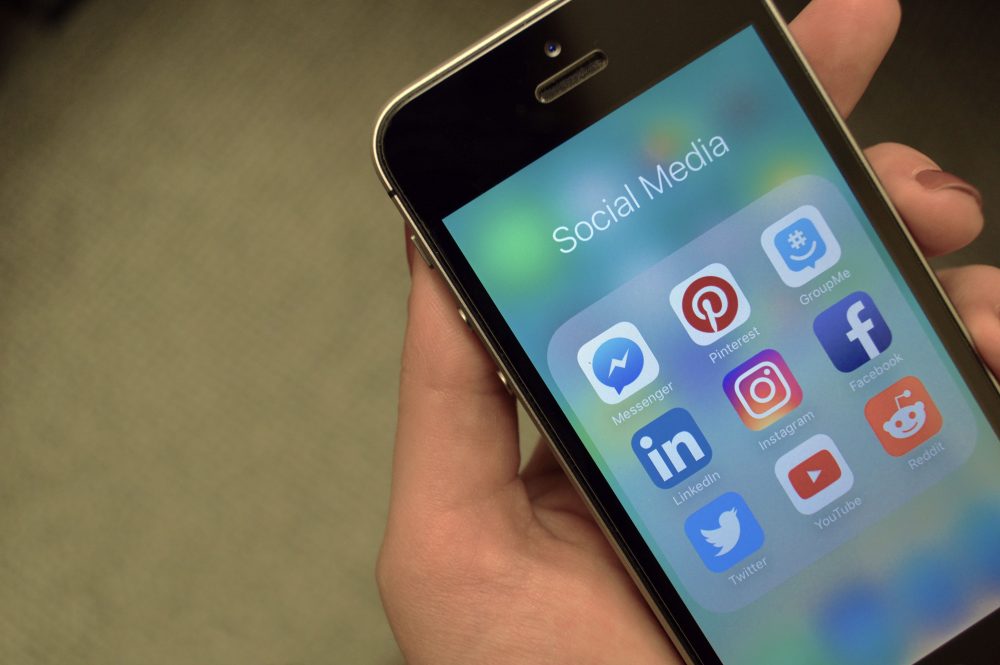You're on the Young People Site
Dedicated to self-harm recovery, insight and support.

Jess Whittaker, a member of the SelfharmUK team, shares her thoughts about how you can stay smart on Instagram.
Today, as I was driving in to work, something I heard on the radio caught my attention and immediately made me turn up the volume. It was a report claiming that Instagram is one of the worst social media platforms when it comes to the impact on young people’s metal health.
In the UK, a survey of 1,479 people aged 14-24 were asked to rate which social media platform they felt had the most negative effect on them. They then scored each platform individually around issues like anxiety, depression, loneliness, bullying and body image.
Once the report had finished, I turned the radio off and thought for a moment. Like everything, Instagram has positive and negative sides to it, depending on what you use it for.
For example, lets’ say you’re someone who’s suffered from a mental health issue, such as self-harm or bulimia and are now in full recovery (well done you!). You might choose to use Instagram to share your story by posting inspiring quotes and photos that show the positive things in your life. There is no denying that Instagram is a really great way to visually spread positive messages quickly.
But what if you’re someone who spends hours on Instagram late at night, alone in your room, constantly comparing yourself to other people? You’ve stopped posting selfies because you’re so convinced that your photos look awful compared to your friends, that all you really use Instagram for now is to re-inforce your negative thoughts about yourself.
If you can relate to the above, don’t be embarrassed or afraid to speak up because… whoever you are and however you choose to use it, we have some great tips about how you can protect your mental health on Instagram:
- Limit the time you spend on there: like all social medias, Instagram can get kind of addictive. Whilst you might feel like time stands still when you’re on there, it doesn’t. You can literally Insta-away your whole weekend and before you know it, it’s Monday already and your back at School or College again! Just think of all that time wasted and all the fun things you could of been doing instead!? Next time you’re on there, set an alarm to ensure you don’t stay on there for too long, or only look during a short car ride somewhere. As soon as you are where you need to be, close your Instagram app and engage with your surroundings.
- Stop comparing yourself to others: this is a tough one. It’s easy for people to tell you not to compare yourself to others, but the truth is, it’s something that everyone has to deal with throughout their lives every now and again. It becomes a problem, however, when it starts to affect your self-esteem, so how you feel about yourself, and you stop doing the things you used to enjoy because you can’t see the point anymore. If you think Instagram (or any social media for that matter) is starting to make you feel that way, tell a family member or trusted adult. Speaking up isn’t easy, but talking about how you feel is the first step to getting help.
- Think that if it looks too good to be true - it probably is: chances are you already know this, but lots of photos we see on social media have been digitally manipulated. This means that they have been edited on a computer using software like Photoshop to make them look better than they are. Many of the Fashion brands or Celebrities you follow will use this technique, but it’s something we constantly have to remind ourselves of as they can become the norm and start to look real. Next time you see a photo of someone on Instagram, who looks too perfect to be real, have a laugh about the fact that nine times out of ten, they probably aren’t!
- Know where you can go for support if something you’ve seen is bothering you: if you see something on Instagram (or any other social media platform) that upsets you for any reason - report it using the options available, then tell a family member or trusted adult immediately. If you don’t want to talk about it with someone you know, you can call The Samaritans or Childline at any time.
- Don’t go on Instagram alone: at the end of the day, if you’re someone that has always struggled with how social media makes you feel, schedule times to login with your friends after School or College. This way you can instantly discuss anything that you have seen that is upsetting you and find out what your friends think. Again, if you’re still unsure, you can always talk to a family member or trusted adult.

The blog post below was written by Ben, a trainee Youth Worker currenlty living in Oundle. Ben reflects on his life so far, the choices he made and how those choices brought him to where he is now.
School and social life can be tough for everyone at some point, but more so when you suffer from various behavioural problems such as anger management, ADHD (Attention Deficit Hyperactive Disorder) and ADD (Attention Deficit disorder).
When I started school, I was just an ordinary young teen who blended into the background and wasn’t even noticed. As I started to grow up, around the age of 13-14, difficulties began to show in my attitude in the classroom. I was starting to show tendencies of an angry, disruptive and argumentative young person. This started to show more during my move into year 10. During that summer I made loads of severe mistakes and managed to get myself into trouble with the police. It wasn’t long after that, when I began to act horribly towards my parents and other people around me. This led through to my massive downfall at school where I had my first suspension for fighting. This had a huge ripple effect on me and my family, as the repercussions from my actions where massive. Towards the end of my time in year 10 it was clear that I had just given up and I couldn’t care what I did and what happened to me. Throughout this time there were moments when I was ready to give up on everything as I didn’t feel or believe I was worth the hassle.
Going into my final year of school I was at my worst, I began to lash out at everyone who even looked at me, and would say and do some horrid things to the teachers around me, including those who were working hard to help me. Midway through year 11 I got into a significant amount of trouble with the police for a fight that I was involved in, this was the breaking point, I had to shape up, or leave home. I narrowly avoided being permanently expelled from school. This lead to me failing my GSCE’s.
I began to go to church pretty much straight after school was finished through a friend who had supported me through my time at school. In my friends’ mind, he felt as if church was the best thing for me, knowing the people who were there and what the church did for him. It was at that church I met several people who were willing to help and support me with my different problems. Ultimately I was very lucky to have met the main youth worker of the church who was willing to give up his time to sit and listen to how I felt for once and was able to relate to me as well as leading me onto a path of respect and change. He even helped to get the relationship between my parents and I stable. I was still not very nice to any of the people who were helping me, but they never gave up on me and made sure I felt listened to and valued!
Within the space of 6 months to a year, I managed to make a full transformation in my life, thanks to the amazing people who gave up and made the time for me. I was finally diagnosed with ADHD, ADD and anger management and received the support I needed. It wasn’t all easy, and I still struggled, as I do now as a 20-year-old man, but I now have the control and help I need to keep myself grounded. As years, have gone on many things have changed and I am now studying at Cambridge University, training as a youth worker, despite being told that I would never amount to anything. My passion is now working with those who are going through what I did.
I just want to say, don’t let what what’s happened in your life define you, don’t let your past mistakes stop you, and don’t let people tell you you can’t make it. You can change your life. You have the power in you to be the best you can, so know that support is there and people understand. This is your life, you can all succeed.
